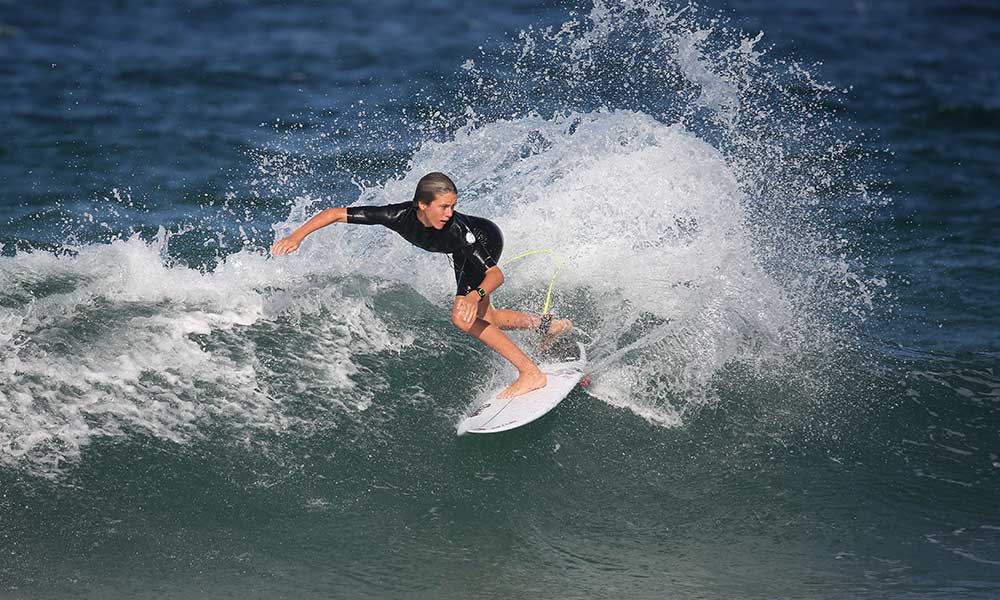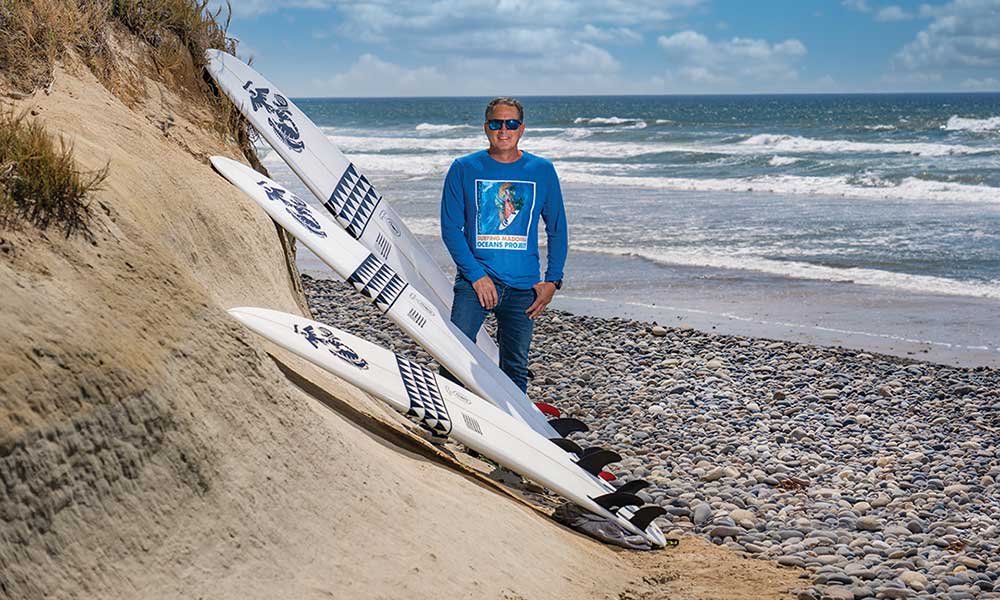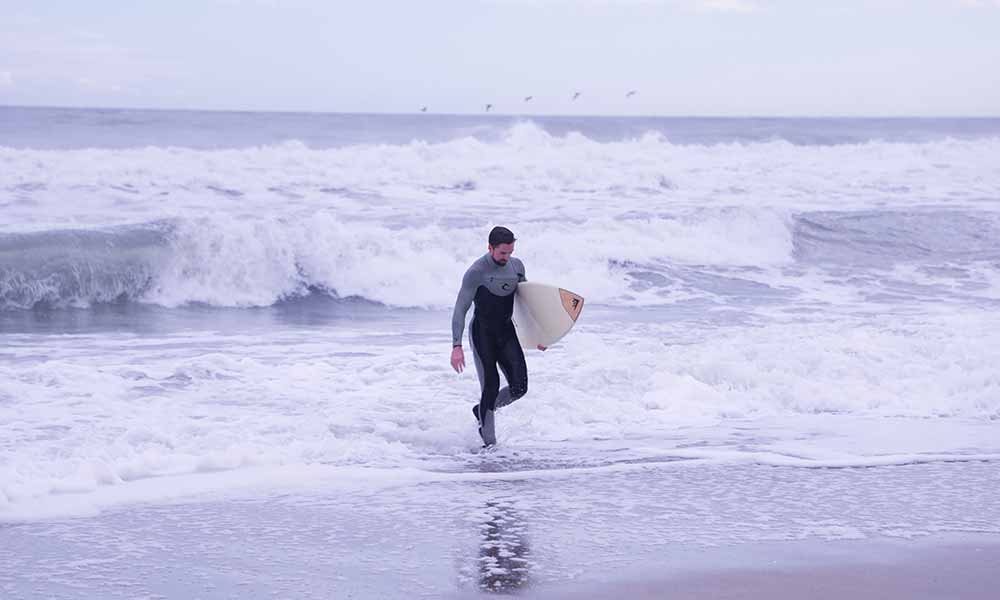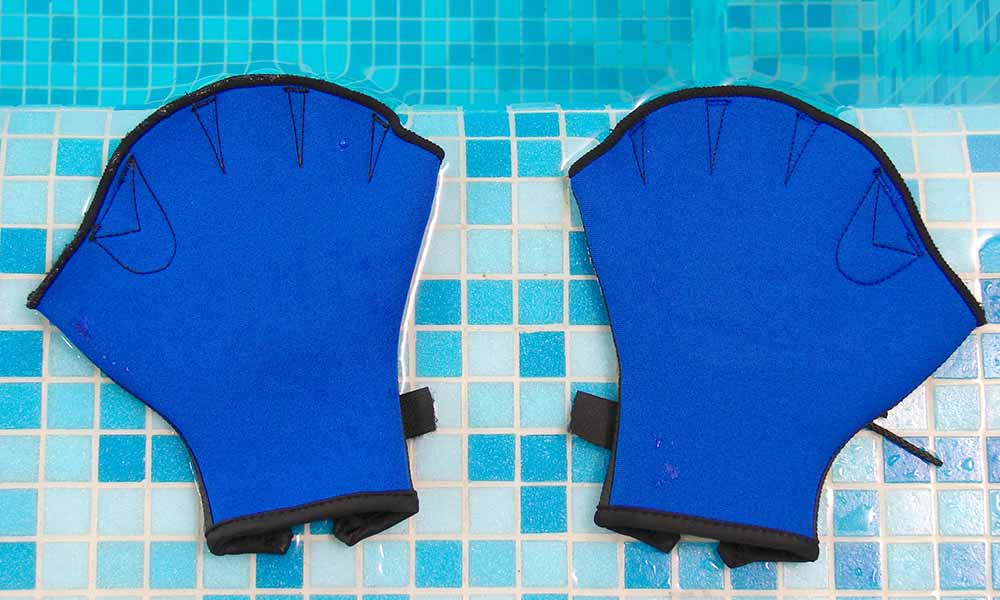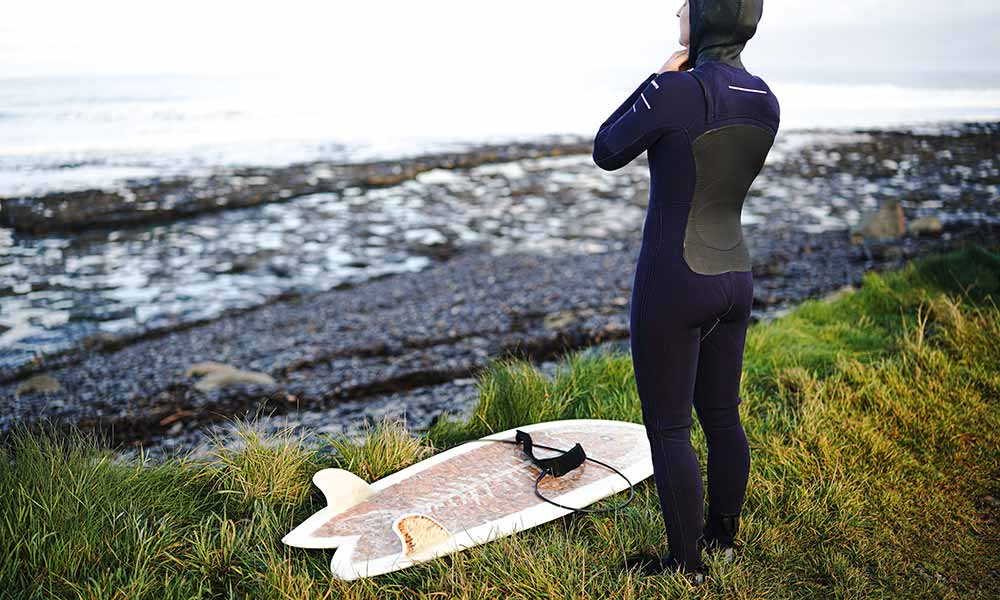If you’re a complete novice, surfing can feel like an impossible challenge. You struggle to stay on the board, can’t maintain your balance, and find yourself toppling into the surf every few seconds.
It’s enough to make you call it quits and take up knitting instead. But don’t quit just yet! If you persist, you’ll get there eventually. Just don’t expect to be surfing like Kelly Slater within the first few weeks.
How Long Does It Take People To Learn To Surf?
It really depends on what you define as learning to surf.
If you’re only interested in learning the basics, you can get there in a few hours.
If you want to master the sport, you’ll need to dedicate at least a couple of years to the craft.
Your physical fitness, balance, strength, and experience will also make a big difference.
If you have experience riding skateboards or snowboards, the learning curve won’t be as steep. If you have played many sports, don’t have great balance, and leave a lot to be desired in the fitness department, it’s going to take a lot longer.
How Hard Is It To Get Good At Surfing?
Getting good at surfing requires a lot of patience. It’s not as trick-heavy as some other sports and activities, but you need to master a few basic techniques and learn how to use the environment to your advantage.
The ocean is not a half-pipe that can be relied upon for consistent lines and tricks. To learn surfing, you must learn how to anticipate good waves, as well as how to surf them.
If you have a natural ability, it could take you several weeks before you can ride waves like the best of them. If not, you may get there in a few months.
How easy it is to reach those goals will depend on how comfortable you are on the waves and how much you enjoy surfing. After all, when you enjoy something, it doesn’t feel like a chore and practice becomes fun.
How Long Does It Take To Become an Advanced Surfer?
It’s often said that if you practice something for 10,000 hours, you’ll become a master.
The idea was popularized by Malcolm Gladwell, who discussed this concept in his book Outliers: The Story of Success. It’s a catchy concept and one that highlights the importance of practice, but it’s also a generalization.
The type of practice is important. Someone who merely paddles out to a big wave, wipes out, and then goes home is clearly not going to learn as quickly as someone who studies the waves, watches the pros in action, and analyses their own movements to see how they can improve.
Also, it doesn’t apply to everything, and it certainly doesn’t make much sense for surfing.
If you’re surfing for several hours a week and genuinely putting the work in, you should be an advanced surfer within a couple of years.
But when we say “putting the work in” we don’t just mean hitting the beach as often as you can and half-assing weak waves with friends.
You need to push yourself. Tackle bigger and harder waves. Try tougher tricks and breaks. Catch waves away from your local surf spots and surf in less-than-perfect conditions.
How Long Does It Take To Become Intermediate At Surfing?
Many surf instructors will tell you that it takes between 500 and 1,000 hours to become an intermediate surfer. But as noted above, it depends on what you’re doing, how good you are, and whether you have the means to tackle an array of surf breaks (beach breaks, reef breaks, river mouth breaks, point breaks, etc.,).
How Can I Become a Better Surfer?
If you’re ready to learn to surf, and you acknowledge how demanding it can be, the following tips will help you to go from a beginner to an experienced surfer:
Take a Surf Lesson
In the early days, the main goal is to learn how to stand and paddle. It’s the boring stuff, but it’s essential.
To get you through this stage quickly, consider paying for a few surf lessons.
A surf instructor will show you where to stand on the board, tell you how to paddle, and will also help you to find a good surf spot.
The surf instructor will hasten your journey to surfing stardom, but more importantly, they will make those early surfs less frustrating. This reduces the risk of you giving up and calling it a day—a very common occurrence among beginners and one you’ll see across all board sports.
Make it Fun
Beginner surfers learn faster and commit themselves more when they surf with friends or groups. It’s more of an incentive to keep hitting those waves, but it also gives you some much-needed accountability when it’s cold and you can’t be bothered to surf.
Set Realistic Expectations
If you’re a fully grown adult with no surfing or board sport experience and you’re expecting to become Kelly Slater, you’re going to be disappointed.
It’s not unheard of for late starters to win a few amateur tournaments and become very skilled at their craft, but you’ve left it a little late to be the GOAT.
Try to set realistic expectations for yourself when you start surfing.
Those expectations can include riding a particular wave at a particular surf spot, getting good enough to surf during a vacation, or simply impressing friends and followers on social media. Once you have the basics down and have significantly improved, you can start raising the bar.
Keep Moving Forward
Don’t settle. As soon as you master the biggest wave at your local surf spot, look for a different location. Try colder water, bigger and better waves, and tougher challenges.
Surf a point break, beach break, and reef break. Look for crumbly waves and double-up waves. The greater the variety of waves that you surf, the more of a complete surfer you will become.
Upgrade Your Board
Most surfers start with longboards and funboards, as they are best for small waves. After advancing to the intermediate level, they usually start looking for a shortboard.
There are step-up options along the way, as well. The point is that you’re progressing to shorter boards that will give you more control over bigger waves and allow you to keep progressing.
Learn From Other Surfers
Mastering the surf requires constant dedication and learning, and that means speaking with surfers who are better and more experienced. Not only can they tell you where the best waves are, but they could help you to learn new tricks and techniques.

